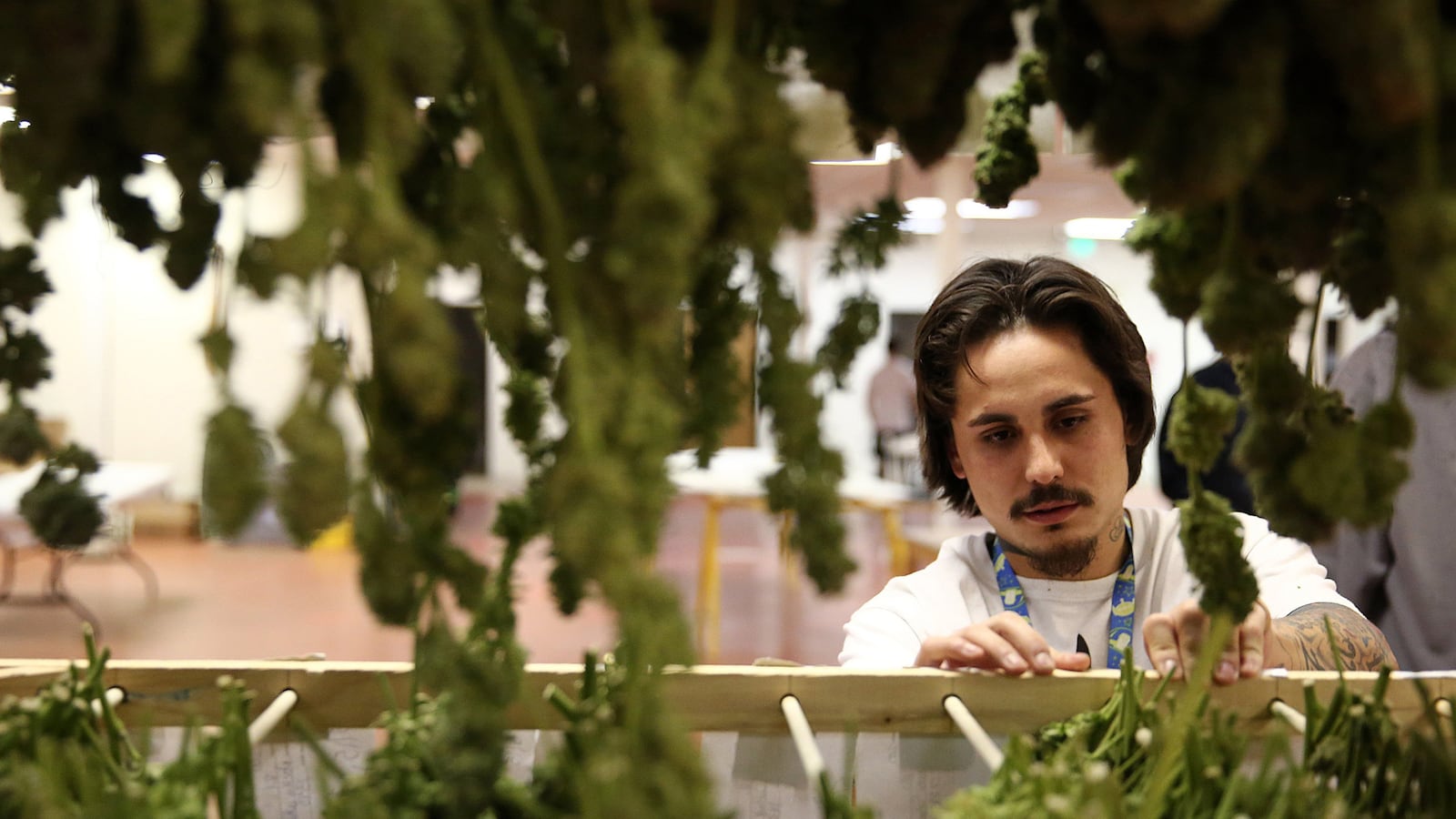"Tax cuts for drug dealers" seems almost a parody of a libertarian slogan. Yet Businessweek reports that just such a concept was launched on Capitol Hill on Thursday.
Oregon Democratic congressman Earl Blumenauer and anti-tax activist Grover Norquist joined forces to argue for more favorable tax treatment for marijuana dispensaries:
Currently, cannabis dispensaries are proliferating in those states where marijuana is legal for medicinal purposes or, as in Colorado and Oregon [sic: actually, it's Washington State], for simply getting baked. But dispensaries aren’t treated like other businesses as far as the federal tax code is concerned: They’re not allowed to deduct their business expenses from their taxable income, which effectively translates into a far higher tax rate.
Blumenauer proposes to change the law to allow dispensaries to deduct expenses and thus retain more of their earnings.

Of course, the most notable expense of a marijuana dispensary is the expense of acquiring marijuana to dispense. Whatever states may do, marijuana remains a Category 1 controlled substance under federal law. Assessing the exact balance between federal and state powers to control drugs poses challenges in a federal system. But however that balance is set, it's certainly a bold proposal that the federal government should allow people to deduct the cost of violating federal law!
And as NBC Los Angeles reported last month, marijuana dispensaries flagrantly ignore even their permissive state laws. Watch this clip of a massage therapist handing out prescriptions signed by a doctor who was over 60 miles away at the time and never examined the “patient”—a clear violation of California state law.
Norquist's group, Americans for Tax Reform, describes dispensary taxation as a “textbook case of punishing law-abiding businesses through the tax code.” But the dispensary business is built on fictions that make it almost inherently non-law-abiding. Supposedly, the business exists to provide a medicine to people who need it. But only the tiniest sliver of the people prescribed marijuana suffer from cancer, AIDS, glaucoma, and the other severe illnesses that supposedly justify the use of this psychoactive drug. In Oregon, the figure is about 3 percent, and it's not much higher elsewhere. As former Obama administration drug-control adviser Kevin Sabet observes, the typical California marijuana “patient” is a 32-year-old white male with a history of substance abuse problems. (I sit on the board of Sabet's group, Smart Approaches to Marijuana.)
The federal government often imposes especially burdensome tax regimes on products that impose unusual social costs: tobacco, alcohol, sulphur dioxide emissions, and so on. In Federalist 12, Alexander Hamilton developed just such an argument in favor of an excise tax upon distilled spirits: "If it [a tax] should tend to diminish the consumption of [distilled liquor], such an effect would be equally favorable to the agriculture, to the economy, to the morals and to the health of the society.” To this day, alcohol pays heavier taxes than milk, and gasoline pays heavier taxes than fertilizer. Whatever the merits of the case for legal marijuana, surely there is no case for cheap marijuana.
Yet the emerging marijuana industry is already fulfilling the worst fears of marijuana restrictionists. Legalization was sold to the American public as a more effective regulatory scheme than a supposedly failed policy of prohibition. Now the mask is dropping, and the emerging industry's real wishes are revealed: to shake off restraints and safeguards and sell more drugs to more people at higher margins. It's a wish that, if granted, will generate big returns for the industry—and significant harms to the most vulnerable Americans.





